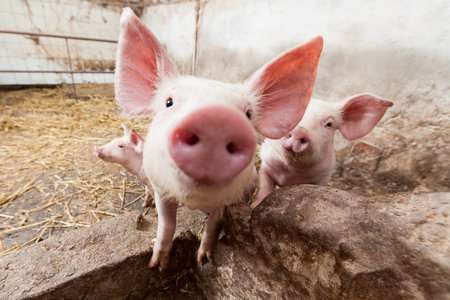Diagnostic labs are reporting increasing SVV cases across the United States
By Jennifer Jackson
In the United States, Seneca Valley Virus (SVV) disease is on the rise, said Corinne Bromfield, veterinarian at the University of Missouri Extension, in a university release.
Diagnostic labs across the country reported seeing over 60 cases of SVV from Jan. to June of 2016, according to the Swine Health Information Center (SHIC). This number contrasts greatly with the 20 reported cases combined from the past 30 years.
The virus is similar to the well-known foot and mouth disease, both clinically and symptomatically. Affected pigs will exude vesicular lesions and will suffer from blisters around the snout, coronary band and inside the mouth. Lameness usually accompanies the lesions.
If SVV is suspected on the farm, producers should not waste any time in contacting a vet and executing biosecurity measures, said Bromfield. Since the symptoms are similar to those of foot and mouth disease, producers should always err on the side of caution and seek professional diagnosis.
“If it looks like a duck and quacks like a duck, it might be a duck,” Bromfield said in the release. “Or it could be a goose.” Therefore testing is required to correctly identify the disease.

Currently, there is no vaccine to treat SVV – producers should quarantine any questionable pigs and restrict further transmission by restricting unnecessary human traffic, she said. The disease can also affect cattle, goats and sheep.
“Keep it off your neighboring farms. Contain (the virus) and treat it,” Bromfield said. “Don’t be complacent.”
A recent SHIC article also stresses the importance of diagnostic testing, especially to differentiate the disease from its related foot and mouth disease (FMD).
“The consequences of not investigating could be catastrophic if what we suspect to be (SVV), turns out to be FMD,” said Lee Ann Thomas veterinarian with the United States Department of Agriculture, in the Jan. 31 article. “Many individuals are reporting lesions. However, given the spread of (SVV), there is a risk that producers and veterinarians could become complacent.”
More information on the SVV and FMD can be found in previous Farms.com coverage.
Farms.com has reached out to Swine Health Ontario to discuss the situation north of the border.